Iran sanctions US officials over pro-Palestine protests
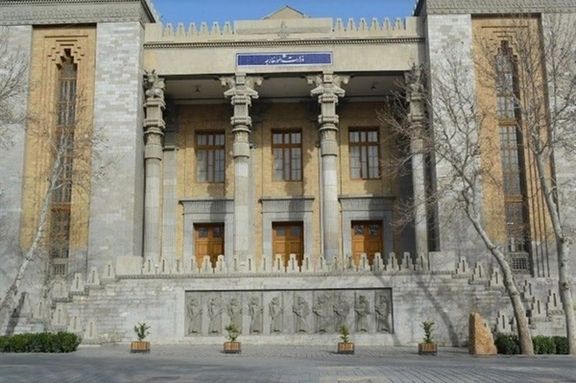
Iran's Foreign Ministry has imposed sanctions on 11 American officials it accuses of clamping down on academic movements supporting Palestine.

Iran's Foreign Ministry has imposed sanctions on 11 American officials it accuses of clamping down on academic movements supporting Palestine.
In a statement on Wednesday, the ministry cited the “violation of human rights” in suppressing pro-Palestine student movements in the US as the reason for the sanctions.
Between April and June, students across the US protested against Israel’s war with Iran-backed Hamas in Gaza, following the deadly Hamas invasion on October 7, which killed 1,200 civilians. Another 250 hostages were taken to Gaza.
Israel’s subsequent retaliation has resulted in over 37,000 thousands of Palestinian deaths according to Hamas. Israel claims at least 16,000 of those are Hamas militants.
The sanctioned Americans include Linda J. Stump-Kurnick, Chief of the University of Florida Police Department and Pamela A. Smith, Chief of the Metropolitan Police Department of the District of Columbia, among others.
The meaningless sanctions mean the officials would face blocked accounts and transactions within Iranian financial systems should they be banking there, asset freezes within Iran's jurisdiction, and a prohibition on obtaining visas or entering Iran.
However, since Iran is under US sanctions for its nuclear program, no American officials would be involved in financial activity with Iran, nor would it be safe to travel there amid Iran's hostage taking policy.
Iran is also sanctioned globally for its support of Russia's war on Ukraine and its human rights abuses at home.
Iranian leaders, including Supreme Leader Ali Khamenei, have praised the Western university protests, viewing them as part of Iran’s resistance against US and Israeli policies. Khamenei has called the protesters part of Iran’s 'resistance front' against the US and Israel.
However, the Iranian government’s support for the protests has sparked backlash among Iranians, who see this stance as hypocritical. Iran's government, known for suppressing dissent, including imprisoning students and educators, is being criticized for celebrating American students' freedom of expression while denying the same rights domestically.
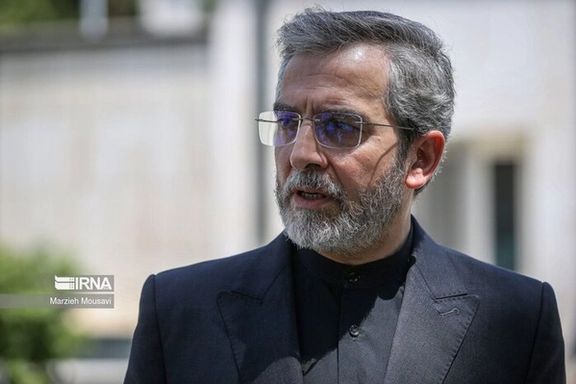
Iran's Acting Foreign Minister threatened that Lebanon will become "a hell without return for the Zionists" if a full-scale war breaks out with Iran's proxy Hezbollah.
Ali Bagheri Kani made the remarks as fears of a third Lebanon war loom strong with drum-beating rhetoric from both sides.
Lebanon joined the war against Israel after Iran-backed Hamas's attack of October 7, in which 1,200 mostly civilians were killed in Israel and a further 240 taken hostage.
Since then, over 3,300 projectiles have been fired by Hezbollah towards Israel leaving 200,000 people displaced on both sides of the border.
It is a continuation of the war-mongering from Iran's government, with an aide to the supreme leader warning this week that Iran's proxies across the region would support the Lebanese militant movement with “all means.”
“All Lebanese people, Arab countries, and members of the axis of resistance will support Lebanon against Israel," he said in an interview with the Financial Times.
Iran's strongest and largest proxy, Hezbollah, is believed to have stockpiled over 200,000 missiles. Its leader has frequently boasted about advanced weaponry that has not yet been deployed in its persistent, albeit low-intensity, conflict with Israel over the past eight months.
Recently, Hezbollah has escalated its attacks, employing exploding drones and low-flying missiles. At least 11 civilians in Israel and dozens in south Lebanon have been killed. Around 400 Hezbollah militants and at least 15 Israeli soldiers have also died in the border war.
The assaults have occasionally overwhelmed Israel's short-range Iron Dome defense system, causing significant damage. Many of the drone attacks have resulted in extensive forest fires in Israel's agriculture-dependent northern regions.
The last major conflict between Israel and Hezbollah occurred in 2006 following the kidnapping of Israeli soldiers.
The war ended with the UN Security Council Resolution 1701, which called for Hezbollah's disarmament—a mandate that has not been enforced as the terror group has only continued to expand and has continually breached the buffer zone of the UN agreement.
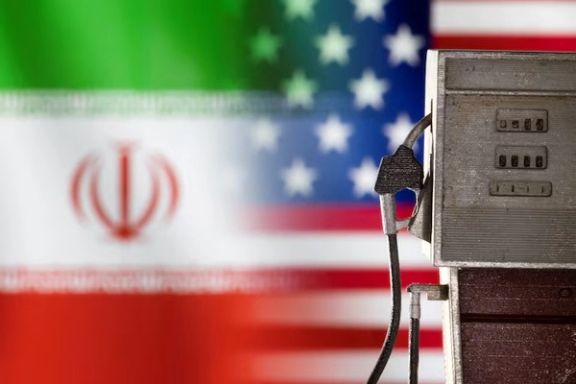
Saudi Arabia's Public Investment Fund (PIF) reported a profit of 138.1 billion riyals ($36.81 billion) for 2023, a significant turnaround from the $15.6 billion loss it posted a year earlier.
The leap highlights the kingdom's successful diversification of its economy away from oil dependency, driven by the Vision 2030 plan.
In contrast, Iran's economy continues to suffer under the weight of international sanctions, which have crippled its oil revenue streams. Iran's annual oil revenue stands at around $37 billion, almost on par with Saudi Arabia's PIF profit, but the actual cash income from crude exports to China remains undisclosed, raising suspicions about the transparency and efficiency of Iran's economic and oil export policies.
Total revenues for PIF more than doubled to $88.3 billion last year from $44 billion in 2022, driven by improvements in investment and non-investment activities across sectors such as banking, telecommunications, and gaming. Increased dividends also played a significant role in the growth. This diversification showcases Saudi Arabia's strategic approach to reducing its reliance on oil, which contrasts with Iran's continued dependence on fossil fuel revenues.
Iran's National Development Fund (NDF), established in the early 2000s to save part of oil revenues for future generations, has seen its reserves depleted. Iran's autocratic policies and economic mismanagement have led to repeated withdrawals from the NDF, especially during times of international sanctions. Despite the NDF's original purpose, the fund has been used to offset the country's budget shortfalls, highlighting a lack of foresight and planning.
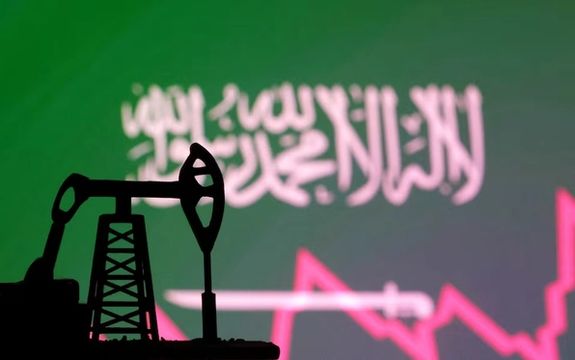
With around $925 billion in assets under management, PIF is Crown Prince Mohammed bin Salman's chosen vehicle to drive an ambitious economic agenda aimed at diversifying Saudi Arabia's economy. The Vision 2030 plan has funneled hundreds of billions of dollars into projects like NEOM, a massive urban and industrial development along the Red Sea coast. This project alone aims to create a high-tech hub nearly the size of Belgium, underscoring the kingdom's commitment to a future less dependent on oil.
Critics argue that Iran needs to shift towards knowledge and technology to create a sustainable economic model. However, research investment in Iranian companies remains below one percent, a contrast to the four percent recommended by experts. This lack of investment in innovation further hampers Iran's economic prospects.
Despite the lifting of most crippling sanctions in 2015 following a nuclear agreement, Iran continued to tap into its NDF reserves. During President Hassan Rouhani’s tenure (2013-2021), $30 billion was withdrawn. As former US President Donald Trump re-imposed sanctions, Iran increasingly relied on its reserves, resulting in a negative cash flow in the NDF. This persistent reliance on the NDF to shore up government finances has left the fund in a precarious state, undermining its intended purpose of providing for future generations.
Under late hardliner President Ebrahim Raisi, the pace of withdrawals from the NDF has only accelerated, further undermining Iran’s economic stability. His administration faced criticism for failing to implement necessary economic reforms and for continuing policies that have led to increased international isolation and economic hardship. This mismanagement stands in contrast to Saudi Arabia's strategic investments and economic reforms through the PIF, which showcase a forward-thinking approach that has strengthened its financial standing on the global stage.
The Iranian government's prioritization of its nuclear program and regional proxy conflicts over domestic well-being has left the country economically vulnerable and politically isolated, while its regional rival Saudi Arabia looks to a future of more investments and growth.
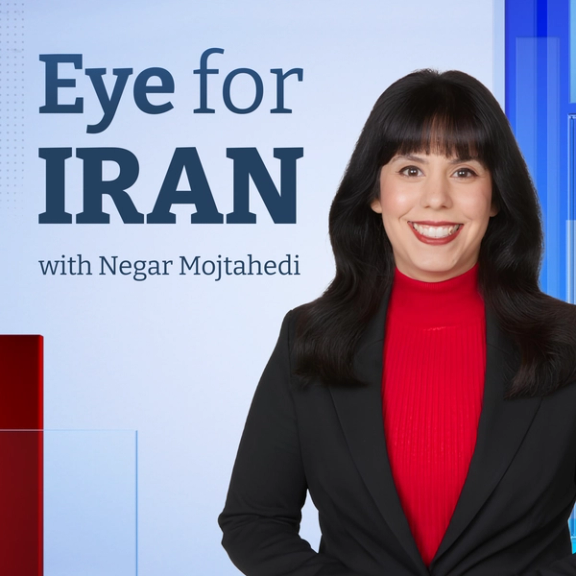
Iran is facing a runoff election with historically low voter turnout of 39.9%, and Canada has listed the Islamic Revolutionary Guard Corps (IRGC) as a terrorist entity, but what are the next steps?
In this week’s episode of ‘Eye for Iran,' we dig deep into the Iran elections and the potential legacy of Iran's Supreme Leader Ali Khamenei and we also investigate what the IRGC terror listing entails and how it will be implemented.
'Eye for Iran' host Negar Mojtahedi speaks with Patrick Clawson of the Washington Institute and Melissa Lantsman, the Deputy Leader of Canada's opposition party, the Conservatives.
In this episode, Clawson tells us that Khamenei "feels much more comfortable being with the Revolutionary Guard Corps and the military than he does with clerics."
Clawson believes Khamenei consolidated power this way.
"He realized early on that it was the revolutionary guard corps and not the clerics who were going to be the center of power in the Islamic Republic," said Clawson.
Another big Iran topic has been the terror listing of the IRGC in Canada and many have a lot of questions. What does it really mean?
The listing process stems from the Anti-Terrorism Act of 2001, and is set out in section 83.05 of the Criminal Code.
Deputy Leader Melissa Lantsman of the Conservatives said she and the party have "a lot of work to do to make sure that this government stays accountable and making sure that that listing means something."
"We're going to make sure that we hold them to account on implementation on this. I'm frankly not confident. We have a government that has been charged with reports of foreign interference where they have looked the other way, where they have looked at intelligence and turned their back on it," said Lantsman.
For more watch Episode 4 of 'Eye for Iran' on YouTube or listen on Spotify.
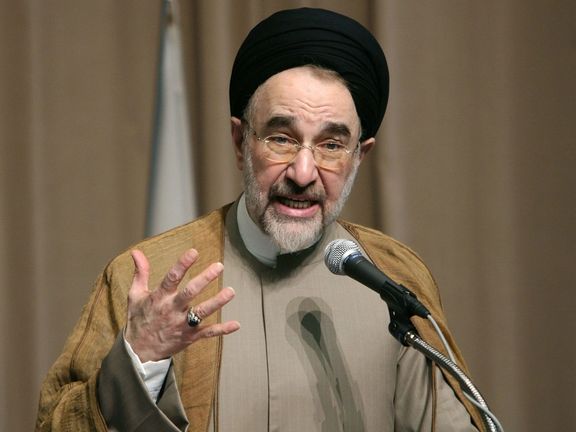
Iran’s former president Mohammad Khatami has highlighted the "unprecedented" absence of 60% of the electorate in Friday’s presidential election, stressing that dissatisfaction extends beyond just the non-voters.
“This act is a clear sign of the public's dissatisfaction with the current state of affairs and indicates the majority's discontent with the ruling system,” said Khatami. “The dissatisfaction is not limited to those who abstained from voting; many of those who did participate are also dissatisfied and voted in the hope of change."
Khatami stressed the importance of everyone participating in the second stage of the elections on July 5 to “complete the unfinished task.” He warned that abstaining could lead to the victory of an "approach harmful to the nation.”
The formerly popular reformist president announced his intention to vote for Masoud Pezeshkian, the sole reform-leaning candidate, and urged others to do the same.
The June 28 presidential election witnessed a historically low voter turnout in the Islamic Republic's history, with only a 39.92 percent participation. This broke the previous record set during the last election, when the late President Ebrahim Raisi won with a 48 percent turnout, providing a clear indication of the current political climate.
A runoff election will be held on Friday, with hardliner Saeed Jalili competing against Masoud Pezeshkian.
Khatami's call for participation in the election comes after he, for the first time in his political career, refrained from voting in the March parliamentary election, despite Supreme Leader Ali Khamenei's repeated assertions that voting is a religious duty. Previously, Khatami acknowledged that "people had the right to be disillusioned with reformists just as they are with the ruling system." This time, however, he is urging people to vote.
There is a notable difference in the current election compared to the parliamentary elections. Reformist parties and groups, such as the Etehad-e Mellat (Nation’s Unity) party, who were previously denied the opportunity to field any candidates, have now endorsed Pezeshkian. They engaged in an intensive campaign to convince voters to take part and elect Pezeshkian. Nevertheless, despite their campaign and repeated calls by Khamenei, at least 60% refused to vote according to official figures. Many Iranian on social media express doubt even about the 40% turnout, insisting that the government boosted the numbers to push the final tally to 24.5 million votes out of 61.5 million eligible.
The results showed that reformists and even the once popular Khatami have lost the trust of the majority.
The erosion of trust in reformists is evident in the public's perception of the ruling establishment, now viewed as a consolidated power structure led by Supreme Leader Ali Khamenei and the Islamic Revolutionary Guard Corps (IRGC), effectively marginalizing the president's authority.
This perspective is mirrored by the reform-leaning candidate, who has consistently acknowledged during debates that Khamenei is the ultimate decision-maker and pledged his adherence to the Leader's directives.
In the latest debate on Monday, Pezeshkian critiqued Jalili for attributing decisions to himself that were, in reality, Khamenei’s. “The final decision is made by the Leader. Don't say that something was done because I was in charge—no. If Mr. Khamenei doesn't like it and doesn't see it as appropriate, he won't allow it to happen,” Pezeshkian asserted, a stance that in theory, appears even more hardline than Jalili's.
It is worth noting that not all reformists continue to believe in “improving” the system. Key marginalized figures within the reform faction have also boycotted the election. Mirhossein Mousavi and Zahra Rahnavard, both under house arrest since 2011, abstained from voting in the presidential elections. Some imprisoned reformists such as Mostafa Tajzadeh also called for a boycott.
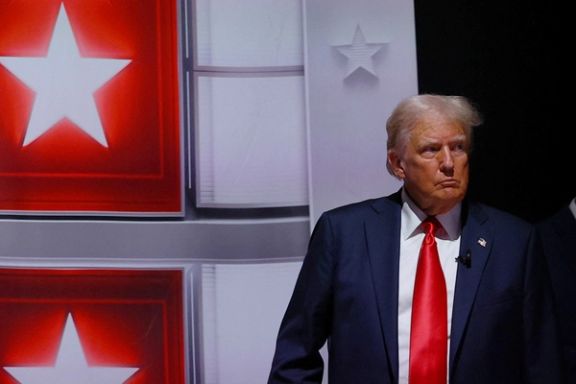
As Iran’s presidential runoff on Friday approaches and the initial US election debates are underway, the potential implications of a Donald Trump victory for Tehran have become a focal point in Iranian media.
The prevailing consensus among Iranian outlets is that there is little chance of Joe Biden's re-election and that a Trump presidency would be detrimental to the Islamic Republic. While some emphasize potential "disasters" in Iran's foreign relations, others propose solutions to mitigate these challenges.
Furthermore, analyses delve into the potential outcomes should either of the Iranian handpicked presidential candidates, Masoud Pezeshkian or Saeed Jalili, be elected.
Mohammad Ali Sobhani, a former Iranian ambassador in Lebanon, explained the best and worst scenarios for Iran's relations with the US in an article published on the “reformist” news outlet Etemaad on Tuesday.
In the best case, if "moderate governments" are in power in both countries—such as "reformists in Iran" and Biden in the US—it would be easier to reduce problems and reach agreements, creating a smoother path for diplomacy and cooperation, according to Sobhani.
In the worst case, if Jalili and Trump are in power, reaching an agreement would be much harder. Sobhani noted that Jalili's' past shows he would be reluctant to use his authority to revive the Joint Comprehensive Plan of Action (JCPOA), even when allowed by the Supreme Leader. He warned that “Jalili's extreme views” could pose significant risks to Iran's foreign relations, making the situation more challenging.
The only reform-leaning candidate, Pezeshkian, supports the JCPOA and advocates for expanding Iran's international ties, emphasizing the economic benefits of the 2015 nuclear deal. In contrast, Jalili criticizes the JCPOA and the moderate factions' focus on relations with just "three world powers," arguing that Iran should engage with over 200 countries to explore diverse opportunities.
The JCPOA involved Iran and major world powers, including the five permanent United Nations Security Council members. Under this agreement, Iran agreed to reduce its nuclear capabilities in exchange for relief from economic sanctions.
However, the US withdrawal from the agreement in 2018 under then-President Trump, followed by the re-imposition of sanctions, strained relations and severely impacted Iran’s economy.
Former Iranian diplomat Abdolreza Farajirad warned that Trump's return could lead to broader sanctions and significantly impact Iran's oil exports. He told Fararu that even a short-term deal with the current US administration would be advantageous, arguing that securing agreements before the US elections would help Iran "be in a stronger postion against Trump."
Farajirad also claimed that such agreements would benefit the Biden administration by “providing a notable achievement before the elections.”
While Farajirad sought solutions, others, like the state-affiliated outlet Iran Online, advocated for a more aggressive stance against a future Trump administration. It emphasized "completing the cycle of nuclear deterrence" as Iran's best strategy against Trump, according to an article titled "What should we do with Trump? A must-read for Jalili and Pezeshkian."
Iran Online stated that when Trump left office, Iran had a "limited nuclear program," with uranium enrichment capped at 3.67% under the JCPOA. Now, with the potential return of Trump to the White House, Iran has enriched uranium to "60% with IR-6 advanced centrifuges" and could achieve nuclear weapons "within a few weeks," framing this as "Iran's biggest trump card against Trump."
Iran's nuclear program has expanded rapidly in recent years, with limited access and many UN inspectors being barred. In June, France, Germany, and Britain, original signatories of the 2015 nuclear deal with Iran, condemned Tehran's plan to expand its uranium enrichment further. The US has also threatened to respond if Iran continues to accelerate its uranium enrichment.
Iran Online also cautioned the upcoming Iranian government, emphasizing that during Trump's first presidency, Iran faced consequences where it showed "indecisiveness" and brought the "proud American to his knees" when exerting authority. The outlet asserted that Trump withdrew from the JCPOA because he saw it as the "endpoint, the only way out, and the only irreplaceable solution for Iran." It further argued that Trump's decision to "commit the crime of Baghdad," that is, killing IRGC Commander Qasem Soleimani by US drones, was a sign of "Iran's perceived vulnerability" following the protests of November 2019.
In 2019, Iran witnessed a series of nationwide protests, referred to as Bloody November, that rapidly evolved into demands for the overthrow of the government and Supreme Leader Ali Khamenei.
Iran Online asserted that should Donald Trump be re-elected, he would confront Iran with “limited available options."
The semi-official Mehr News Agency also echoed a similar sentiment, stating that "if Donald Trump wins in the upcoming US presidential elections, there is almost nothing left to impose sanctions on our country." Adding that "However, our country's efforts to neutralize sanctions are expanding day by day."
Although other outlets did not share this optimism.
Amirali Abolfath, an international relations expert, told Etemaad newspaper in Tehran that US sanctions will persist regardless of who is in the White House, noting they will "continue" and potentially "increase in numbers".
He asserted that any incoming president in Iran would be unable to effect significant changes in Iran-US relations or the nuclear issue, emphasizing the "continuity in Iran's foreign policy" due to the structure of the Iranian constitution, implying that Supreme Leader Ali Khamenei remains the ultimate decision-maker.
Abolfath also highlighted the possibility of the "snapback mechanism" being activated, irrespective of whether Jalili or Pezeshkian becomes president, mainly as the JCPOA expires in October 2025. Without a relative agreement by then, Abolfath warned that "UN sanctions will return," potentially escalating tensions between Iran and the US.
The snapback mechanism, part of JCPOA, allows any participant to restore all UN sanctions on Tehran if it deems Iran violating the agreement.
During their first televised debate on Thursday night, US President Joe Biden and former President Donald Trump clashed over their respective records on Iran, each accusing the other of weakness while failing to provide any clear insight into their future policy towards the Islamic Republic.
President Biden's Iran policy has faced widespread criticism for being too lenient. Critics say that the Biden administration has not enforced the oil export sanctions by reversing Trump's maximum-pressure approach to pursue a nuclear agreement. Additionally, prisoner swaps and waivers have freed $16 billion in previously frozen Iranian funds, funneling tens of billions of dollars into the regime's coffers.
Nevertheless, despite differences in outlook and style, both candidates seemed intent on appearing tough on Iran during their Thursday debate, particularly in the wake of the October 7 attack on Israel, which many believe would not have occurred without Tehran's support for Hamas.